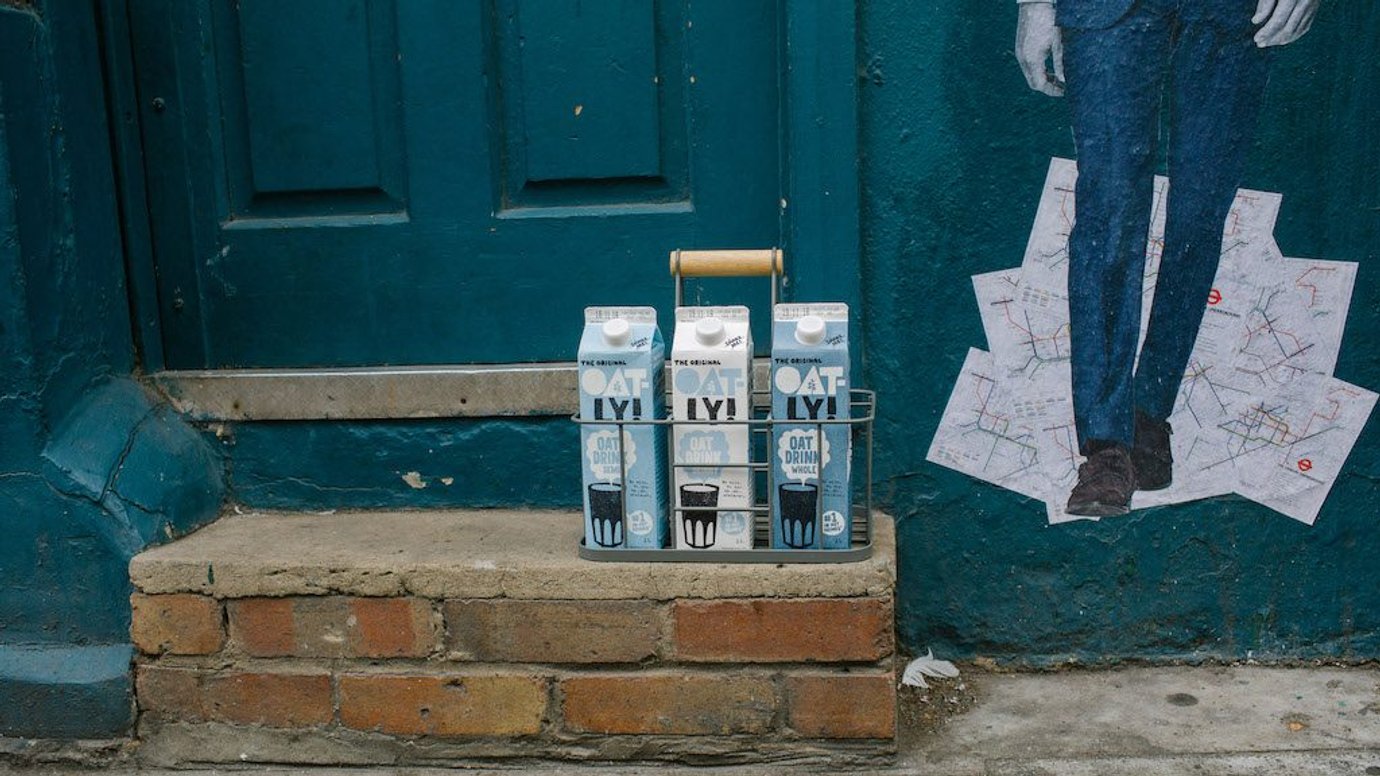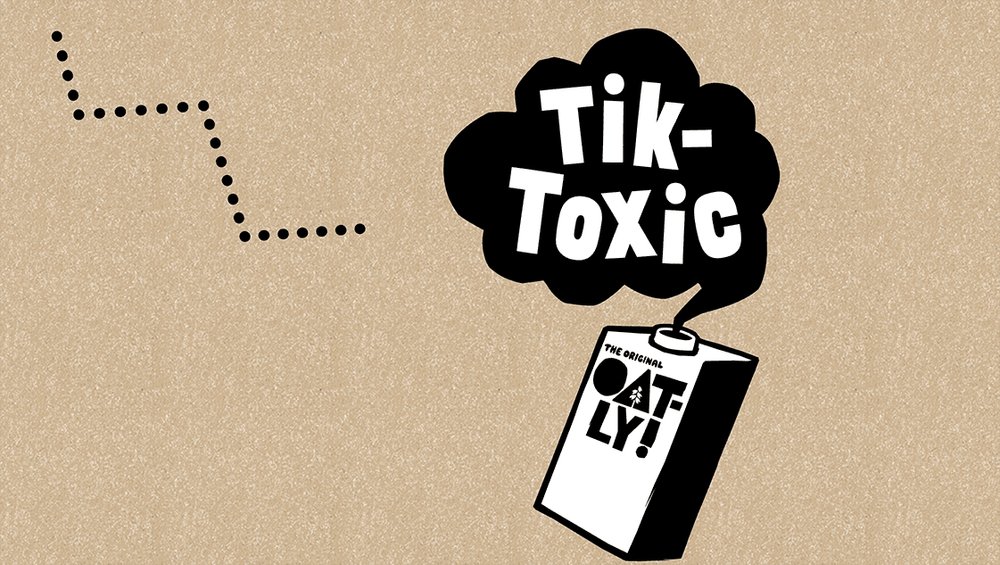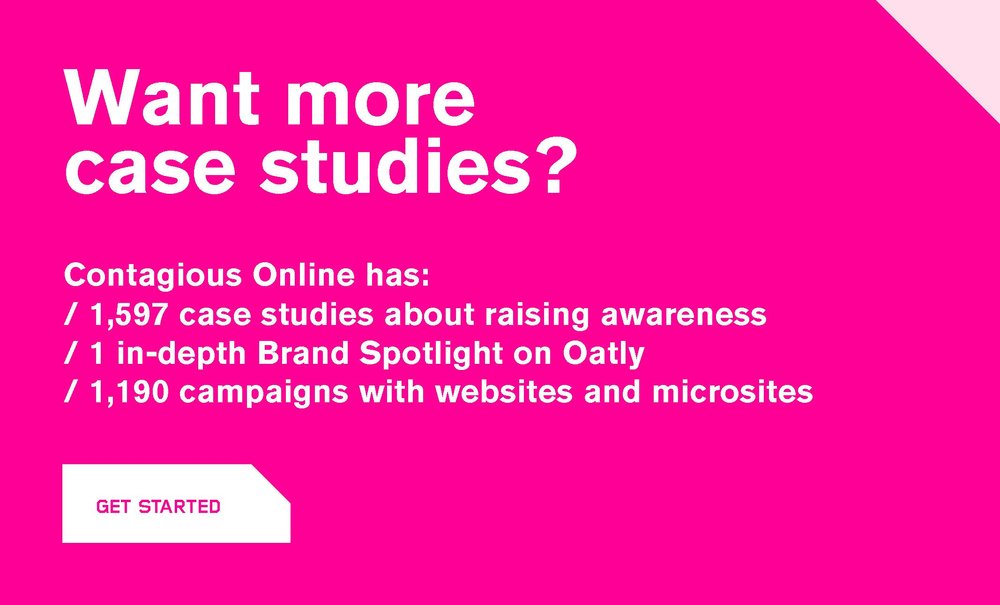Campaign of the Week
Oatly publishes website compiling all its controversies /
Alt-milk brand takes charge of its reputation with website listing all its scandals

Swedish food company Oatly, which produces alternatives to dairy products made from oats, has created a website featuring all of the negative press it has received over the past few years.
The Fck Oatly site is a timeline of Oatly’s most high-profile controversies, including ‘Glebe-gate’ (in 2021, Oatly lost a trademark infringement lawsuit with Glebe Farm, a family-run farm which makes a product called PureOaty) and ‘The Residue Ruckus’ (the company was lambasted in 2018 for selling oat residue to pig farms as animal feed).

Other highlights include the criticism Oatly received for adding Blackstone as an investor in 2020, and the complaints about its 2021 Help Dad campaign, which subverted father-teenager interactions to be about teens convincing dads to go plant-based.
There is also a comprehensive ‘Oldies but goldies’ list of Oatly’s longest standing controversies, such as investment from Chinese state-owned conglomerate China Resources, and rumours about the sugar content of its oat milk.
Each controversy has its own webpage, complete with screenshots of interactions on social media where Oatly has replied to negative Instagram comments and tweets. The replies are in Oatly’s trademark irreverent tone of voice and often poke fun at the critics.
In an introduction to the site, Oatly explains that it is ‘devoted to helping our fans – and the thousands of people who hate us – better understand everything that’s “wrong” with our company. Why would we build such a website?’ the brand asks. ‘That’s a great question! For starters, it’s super convenient to have the latest boycotts and criticisms all in one place. But more importantly, we’re not the type of company to hide from moments like these. We see all the negative headlines, posts and petitions as an inevitable consequence of trying to create positive societal change.’
Contagious Insight /
Owning the narrative / Similarly to KFC’s handling of one of its all-time worst PR crises – when the chicken chain ran out of chicken after a supplier issue – Oatly’s response to negative press is transparent, irreverent, and takes full ownership. KFC’s 2018 FCK campaign by Mother, London, was led with a straightforward apology and reassurance that the brand was doing what it could to alleviate the crisis (never mind what your teachers used to say, both these campaigns show that sometimes swearing is both big and clever).
‘[KFC] has not gone overboard with apologies and handwringing and a reminder that it is here to fix the world,’ wrote Mark Ritson at the time. ‘This is a brand speaking in a voice this is exactly in line with brand positioning and with the audience it is targeting. It should not be something we need to praise, but in a marketing world surrounded by the pompous indulgences of marketers who want to do anything other than promote their brands, a simple message that “we FCKed up” has incredible cut-through and deserves the plaudits.’
By highlighting all its controversies in one place, Oatly shines a light on its own mistakes, but more importantly does so on its own turf, accompanied by pithy retorts and reasonable justifications. Who knows if any Oatly haters will be lured in by the anti-Oatly domain name and stay to read the brand’s responses to its critics, but the website at least serves as a resource for Oatly to refer people to in future.
Manner of speaking / If you’ve familiarised yourself with the back of an Oatly milk carton or seen their early out-of-home campaigns or watched their ads, you’ll have a sense of the brand’s distinctive tone of voice. Oatly’s chatty, humorous, irreverent-bordering-on-snarky brand voice has echoes of ‘wackaging’ (the tiresome trend pioneered by Innocent Drinks, whose bottles are laden with quippy copy and sometimes even sold wearing tiny woolly hats).
Like it or not, it’s a tone of voice that captures attention – in 2014, the brand’s carton copy ‘‘It’s like milk, but made for humans’ and ‘No milk. No Soy. No badness’ got the brand into legal trouble with Swedish dairy lobby group LRF Mjölk. In 2020, the brand ran a slightly barmy out-of-home campaign (appropriately called Nonsensical Campaign) with executions such as nine consecutive posters reading: ‘Look! It’s nine posters lined up perfectly in a row under a bridge to get your attention for this Barista Edition Oat Drink. Hope you notice.’ The Fck Oatly website is consistent with this tone, but employs it to tackle serious topics like Chinese governmental influence and nutritional content in typical Oatly style – a testament to the power of having a strong, consistent brand voice.
As well as brushing off any inconvenient bad PR, the website is a PR stunt in itself – creating a website called Fck Oatly is exactly the kind of thing we expect from the brand, but it still feels subversive for actually doing it. For more on Oatly’s marketing strategy, read our Brand Spotlight or watch this talk by Oatly’s global CCO, John Schoolcraft, at Most Contagious 2019.
Want more of the same? /
We don’t just write about best-in-class campaigns, interviews and trends. Our Members also receive access to briefings, online training, webinars, live events and much more.







